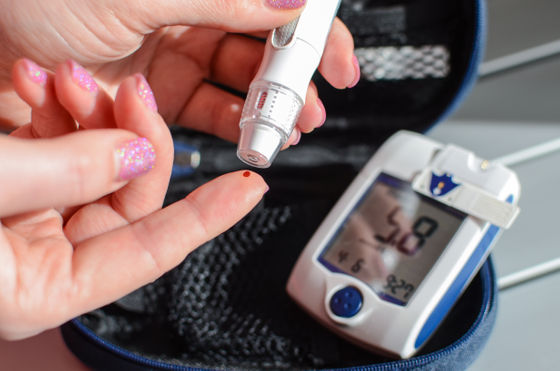Research shows that depression is a direct cause of type 2 diabetes, and mental care is also important for preventing lifestyle-related diseases

It is known that there is a relationship between depression and type 2 diabetes, but it is unclear whether depression patients' activity level decreases, leading to lifestyle-related diseases, or conversely, physical discomfort leads to deterioration of mental health. It was not clear whether they would be connected. A new genetic study has found that depression is a risk factor for type 2 diabetes.
Bidirectional Mendelian Randomization and Multiphenotype GWAS Show Causality and Shared Pathophysiology Between Depression and Type 2 Diabetes | Diabetes Care | American Diabetes Association
New study reveals depression is a risk factor for type 2 diabetes | University of Surrey
https://www.surrey.ac.uk/news/new-study-reveals-depression-risk-factor-type-2-diabetes
Depression can play direct role in developing type 2 diabetes, says study | Diabetes | The Guardian
https://www.theguardian.com/society/2023/sep/07/depression-can-play-direct-role-in-developing-type-2-diabetes-says-study
Depression a 'Direct Risk Factor' for Type 2 Diabetes
https://www.medscape.co.uk/viewarticle/depression-direct-risk-factor-type-2-diabetes-2023a1000l16
Since depression and type 2 diabetes have common symptoms such as fatigue, abnormal sleep times, and decreased concentration, it is possible to determine whether there is a causal relationship between depression and type 2 diabetes, or whether another factor is causing the two. Until now, it was unclear whether it was a common cause of the disease.

A research group led by Professor Inga Prokopenko at the University of Surrey in the United Kingdom conducted research using a method called
The research group first extracted the records of 19,344 patients with type 2 diabetes, 5,262 patients diagnosed with depression, and 153,079 people who self-reported depression from medical databases in the United Kingdom and Finland. Then, based on genetic and health information, we analyzed the risk that people with depression or type 2 diabetes would develop the other condition.
As a result, they found for the first time that depression is a direct cause of an increased risk of developing type 2 diabetes, and also identified seven genetic variants that contribute to both type 2 diabetes and depression. Because these mutations are related to insulin secretion and inflammation in the brain, pancreas, and adipose tissue, research suggests that problems with these biological processes may be linked to an increased risk of type 2 diabetes due to depression. They are guessing.

The research group bases this theory on the fact that 37% of the effect of depression on type 2 diabetes can be explained by body mass index (BMI), that antidepressants cause weight gain and cause type 2 diabetes, and that depression induces stress hormones. He pointed out that an increase in the secretion of insulin worsens insulin resistance.
While depression was found to be a contributing factor to type 2 diabetes, there was no direct evidence that type 2 diabetes leads to the development of depression. However, an indirect relationship between the two diseases has not been ruled out; for example, it is thought that the burden of fighting type 2 diabetes may be a remote cause of depression.

'This finding points to the need for additional testing to prevent people with depression from developing type 2 diabetes, an important finding for both patients suffering from depression and healthcare providers,' said Prokopenko. It will be,” he said.
Related Posts:
in Science, Posted by log1l_ks







